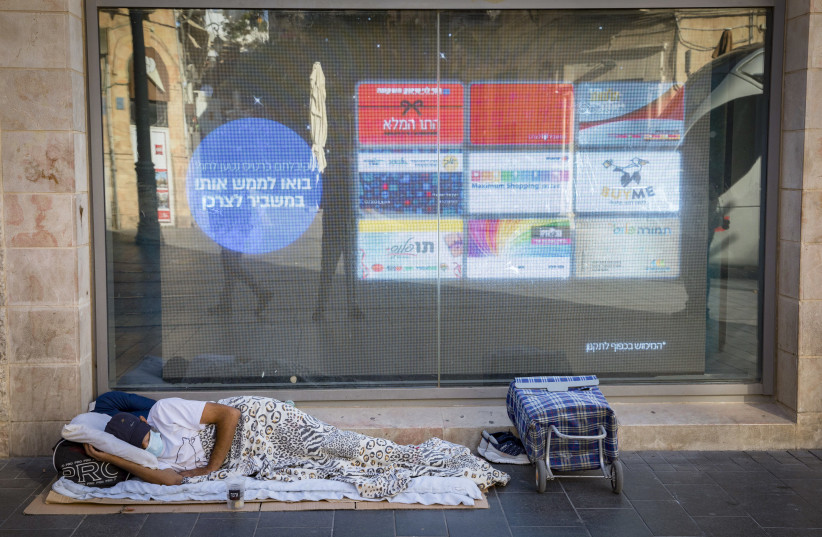The Gagon, which replaced a shelter demolished by the city three years ago, provides free lodging and services to the homeless, primarily substance-abuse victims, and is accessible to the disabled. It offers clean beds, hot meals, suitable clothes, laundry services, showers and personal lockers, as well as medical care.
Planned to provide a pleasant environment for its residents, its porches overlook the ocean. A municipal social worker is available to assist residents and refer them for outside medical treatment where necessary. The facility is open every day from 3 p.m. until 9 a.m. the following morning.
The shelter’s main goal, the city says, is to “provide a home for addicts living on the streets while maintaining a sense of human dignity.”
Former combat soldier-turned-grocery store owner Gabi, 62, said he sought shelter after falling under the influence of men involved with crime and drugs. “This place is something I could not have imagined existed, and gives us the possibility to look forward with hope,” he said.
Tel Aviv Mayor Ron Huldai said the Gagon offers a temporary home for people without family or a social support system.
“The increasing number of city residents creates a growing number of homeless people with complex needs,” Huldai said. “While homelessness is not a new phenomenon, it is certainly expanding.”
According to the city, more than 1,000 homeless people live in Tel Aviv, one of the most expensive cities in the world. A Knesset report based on data from a range of ministries and organizations found that 3,500 homeless people across Israel received treatment or resources from official sources in 2020. Although these figures are low compared with other countries, Elem and other organizations believe the actual numbers might be significantly higher.
“The issue of caring for impoverished and often forgotten members of our society was something that was close to my father’s heart, and it is entirely fitting that this facility will now bear his name and help preserve his legacy of caring and humanity.”
Yael Eckstein
Eckstein thanked the city for naming the shelter in honor of her father, noting that the Fellowship became one of Israel’s top social welfare organizations under his leadership. “The issue of caring for impoverished and often forgotten members of our society was something that was close to my father’s heart, and it is entirely fitting that this facility will now bear his name and help preserve his legacy of caring and humanity,” she said.
Before my very first interview with Yechiel Eckstein for Kol Yisrael English News in his Jerusalem office, soon after he made aliyah from the US in 2002, he asked me to tell him something about myself. This was a man who cared about people. I told him I had written my sociology thesis on Gandhi in South Africa, and my journalism thesis on the homeless in Berkeley. I’ll never forget his response. “There’s a connection between the two,” he exclaimed. “Gandhi believed that the greatness of a nation is measured by how it treats its weakest members.”

